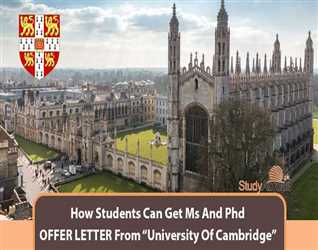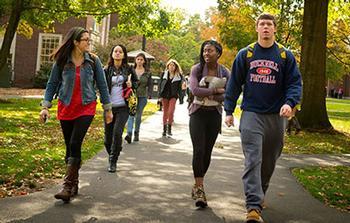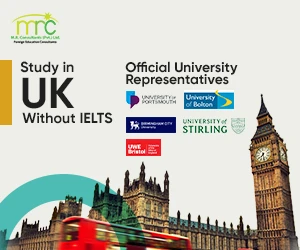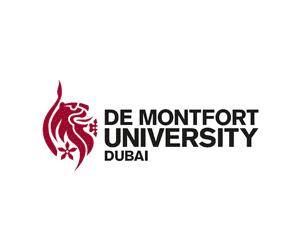University of Cambridge is fourth oldest university of the world. Cambridge was founded in 1209 and it has always  been among world’s top leading institutes. It is situated in England, United Kingdom. It is one of the universities where every student dreams of studying for higher education. However, being the best, it has its own and very tough eligibility criteria. Only the best of the minds around the world get to study at Cambridge. Cambridge is famous for creating the best of the creative minds of history, you will see it below in its Cambridge alumni section.
been among world’s top leading institutes. It is situated in England, United Kingdom. It is one of the universities where every student dreams of studying for higher education. However, being the best, it has its own and very tough eligibility criteria. Only the best of the minds around the world get to study at Cambridge. Cambridge is famous for creating the best of the creative minds of history, you will see it below in its Cambridge alumni section.
It is said that it actually was founded by some scholars of Oxford. Those students were said to be fugitive who had to leave Oxford in 1209 due to some conflicts after the murder of a woman. It has proved its worth being one of world’s top universities and rivaling the Oxford University itself. In the latest ranking for best universities, it even outranked Oxford.
They have a total of 18,605 students of which 35% are international with the ratio of 45% females and 55% males. Their acceptance rate is less than 21% of students whose applications are accepted. It is also one of Eight Ivy League Institutions.
· SEE ALSO: All the Cost and Expenses to Study Abroad in United Kingdom
Achievements of Cambridge
.jpg)
In the latest ranking by QS, Cambridge University is ranked 5th best higher educational institute of world to study in 2018. Currently it is ranked by the Best university of United Kingdom leaving even prestigious institute like Oxford behind. It is one of biggest institutes of world that provides Sciences research. One of the key contributors to the university’s research output is the Cavendish Laboratory, which is the largest physics department in the UK and birthplace of ground-breaking discoveries such as the structure of DNA, and the splitting of the atom. It has always been among top 5 universities of world and all ranking organizations approve of this. There are 114 libraries in Cambridge with millions of books.
· HERE SEE: Latest Ranked Top 100 Universities for 2018 by QS
Here is link to official website of University of Cambridge to see the more latest discoveries and achievements by Cambridge.
Successful Alumni of Cambridge
Pick any big and successful scientist, philosopher or mathematician from history and you will find out that he/she is  Cambridge alumni. Here I am going to mention a few most famous of them.
Cambridge alumni. Here I am going to mention a few most famous of them.
You must Sir Isaac Newton, he spent most of life in Cambridge. He was a part of Trinity College. Biggest scientist and genius mind alive at present, do you know his name? His name is Stephen Hawking. He is a also a Cambridge alumni. In addition, biggest name among Cambridge alumni include:
1. Sir Francis Bacon, responsible for the development of the scientific method
2. Revolutionary Mathematicians John Dee and Brook Taylor
3. Srinivasa Ramanujan, G. H. Hardy, John Edensor Littlewood and Augustus De Morgan, four of the most famous and pure mathematicians of history
4. Ludwig Wittgenstein, philosopher
5. Paul Dirac, theoretical physicist
6. Discoverer of the Neutron, and Sir John Cockcroft and Ernest Walton
7. J. J. Thomson, discoverer of the Electron
8. 15 British Prime Ministers
9. At least 30 foreign Heads of State/Government, including of Pakistan
10. At least 9 King and Queens
Colleges in Cambridge
Whole Cambridge university is divided among 31 colleges. All colleges have their administration, endowments and funds. Every student of Cambridge is attached to a college. Each college appoints its own teaching staff and fellows. Of all 31 colleges also mentioned below, Murray Edwards, Newnham and Lucy Cavendish, admit only female students. Every college provides its own housing, welfare and social functions to students.
|
1. King's College 2. Trinity College 3. St John's College 4. Peterhouse College 5. Clare College 6. Pembroke College 7. Gonville & Caius College 8. Trinity Hall College 9. Corpus Christi College 10. Queens' College 11. St Catharine's College 12. Jesus College 13. Christ's College 14. Magdalene College 15. Emmanuel College 16. Sidney Sussex College |
17. Downing College 18. Girton College 19. Newnham College 20. Selwyn College 21. Fitzwilliam College 22. Churchill College 23. Murray Edwards College 24. Darwin College 25. Wolfson College 26. Clare Hall College 27. Robinson College 28. Lucy Cavendish College 29. St Edmund's College 30. Hughes Hall College 31. Homerton College |
School, Faculties and Departments in Cambridge

I have already discussed the 31 colleges that make Cambridge University. In addition to them, there are over 150 departments, faculties, schools, syndicates and other institutions. Teaching and research in Cambridge is controlled by faculties. Schools in Cambridge are comprehensive administrative alignment of some related faculties and other units. There total 6 schools in Cambridge.
· Arts and Humanities
· Biological Sciences
· Clinical Medicine
· Humanities and Social Sciences
· Physical Sciences
· Technology
Cost of Studying at Cambridge
All programs in Cambridge are divided into 5 groups for tuition fees. Following table shows all the groups, their programs and tuition fees per year. This table is for those overseas students who wish to study in 2018 at Cambridge.
|
Group |
Programs |
Fees |
|
1 |
Anglo-Saxon, Norse, and Celtic; Archaeology; Asian and Middle Eastern Studies; Classics; Economics; Education; English; History; History of Art; History and Modern Languages; History and Politics; Human, Social, and Political Sciences; Land Economy; Law; Linguistics; Modern and Medieval Languages; Philosophy; Theology, Religion, and Philosophy of Religion |
£29,2172 |
|
2 |
Mathematics |
£29,2172 |
|
3 |
Architecture, Geography, Music |
£29,2172 |
|
4 |
Chemical Engineering, Computer Science, Engineering, Management Studies, Manufacturing Engineering, Natural Sciences, Psychological and Behavioral Sciences |
£29,2172 |
|
5 |
Medicine, Veterinary Medicine |
£50,1302 |
Living expenses in Cambridge are estimated to be approximately £10,080 for the year 2017-18.
When to Apply for Admission at Cambridge?
Oxford and Cambridge has different intake dates than most other universities in UK. You are required to apply by 15 October of 2017 if you wish to study in 2018. Here you can See Step by Step on How to Apply for Admission in UK Universities.



.gif)


 4237
4237
 0
0



























